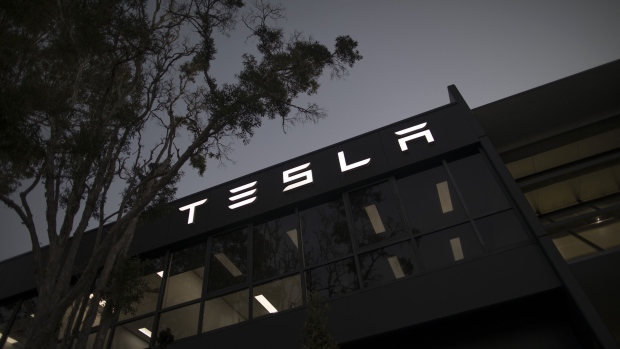May 6, 2022
Tesla Confirms Vale Nickel Deal, Lifts Veil on U.S. Race Data
, Bloomberg News

(Bloomberg) -- Tesla Inc. confirmed a deal to buy nickel from mining giant Vale SA among other metal-supply contracts in an annual report on the company’s global impact, which also provided detailed data on the racial composition of its U.S. workforce.
The electric-vehicle maker’s report issued Friday is the most comprehensive view Tesla has given of its metals-supplier relationships, a topic of increased interest as global auto industry demand for EV batteries has exceeded supplies. Unlike most other major carmakers, Tesla has sought to manufacture its own battery cells and buy raw materials directly from metals producers.
Tesla listed Vale as a direct supplier of nickel for batteries, sourcing the metal from an integrated mine and refining site in Canada, which Bloomberg News first reported in March. The report also detailed agreements with producers such as Albemarle Corp., Livent Corp. and China’s Sichuan Yahua Industrial Group Co. for supplies of lithium.
As the EV market leader’s battery supply chain continues to scale, Tesla expects the proportion of directly sourced minerals to grow. It already has deals with nine mining and chemicals companies to supply more than 95% of its lithium, greater than half its cobalt and over a third of its nickel, according to the report.
The 144-page annual filing covers the Austin, Texas-based company’s environmental impact, supply chain, recycling and diversity and inclusion efforts.
Tesla confirmed its health insurance policies included travel and lodging for employees who had to seek health-care services out of state. That has become increasingly relevant because Texas has made it more difficult to get abortions and the state is prepared to outlaw the procedure entirely if the U.S. Supreme Court overturns its stance preventing such a move.
The New York Times earlier reported on the health-care provision.
Tesla also provided previously undisclosed statistics on the racial breakdown of workers in the U.S. based on the private filings it submits each year to the Equal Employment Opportunity Commission. However, unlike competitors including General Motors Co. and Ford Motor Co., it only detailed percentages and not raw numbers for employees in each category, a practice that diversity experts say can obscure weaknesses depending on how jobs are categorized.
Read why Tesla is holding out against releasing full diversity data
Tesla selected a handful of companies to argue its racial representation compares favorably to the tech and automotive industries. Its Hispanic workforce at the end of 2021 was much higher than Ford’s and GM’s -- the only two automakers it compared itself against -- though the advantage was much smaller for professional and executive roles. On the flip side, Tesla was underrepresented for Black workers compared with the two competitors based in Detroit.
The EEOC provides more comprehensive industry data each year that might put Tesla’s numbers in more perspective, but hasn’t yet provided the figures for 2021.
Tesla said its worldwide headcount grew 40% in 2021. Chief Executive Officer Elon Musk recently tweeted it has over 110,000 “direct jobs” globally.
©2022 Bloomberg L.P.





